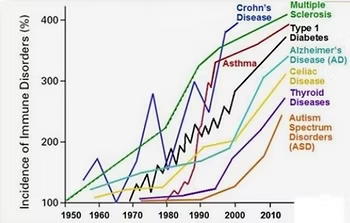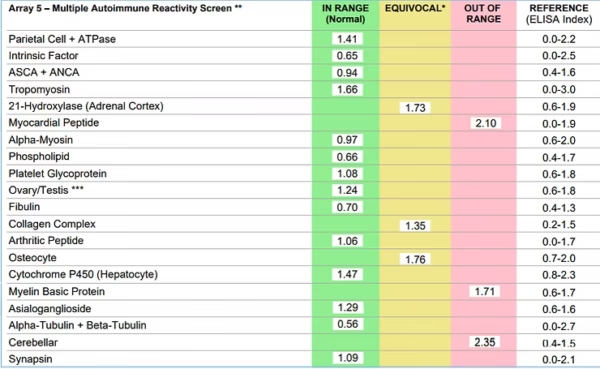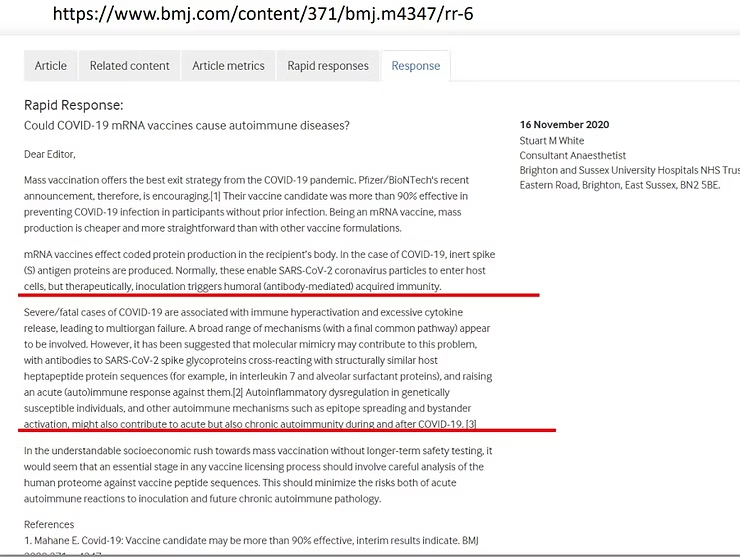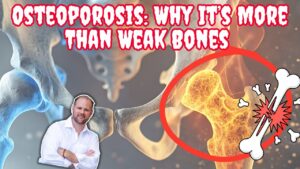Many people are wondering whether vaccinations, like the COVID-19 vaccine, can cause autoimmune conditions to worsen, flare up, or present for the first time. Some people who have recently gotten the vaccine have noticed their symptoms flaring up, or are noticing autoimmune reactions cropping up where there weren’t any before. They’re wondering what’s going on, and whether the vaccine has caused these reactions. This post will explain how vaccines work, and how they can indeed cause autoimmune reactions according to the latest research.
Research shows that vaccinations can cause autoimmune disease. That’s why so many people with chronic autoimmune issues have been noticing their symptoms worsening, and why those with an underlying condition have seen it come to the forefront after getting vaccinated. It’s very prevalent. In fact, you probably know someone in your sphere who’s gotten the vaccination and is now experiencing autoimmune symptoms like brain fog, dulled senses, and neuropathy.
About autoimmune disease
Twenty-three million Americans suffer from autoimmune disease, and of them 78 percent are women. There are more than 80 different autoimmune diseases out there, and it’s the fourth leading cause of disability in women. In fact, there’s twice as much money spent on autoimmune diseases than cancer in the United States right now. The problem with autoimmune disease is that each disease has a unique name that doesn’t intuitively link it to the others. Contrasting it to cancer, where you could have breast cancer, bone cancer, prostate cancer, skin cancer, and all have the word “cancer” in the name.
When we talk about autoimmune disease, we’re talking strange, unrecognizable names: Hashimoto’s disease, lupus, psoriasis, celiac disease, irritable bowel syndrome (IBS), and others. They’re all autoimmune diseases and function in much the same way, but people don’t understand this because it’s not in the name. If you have a chronic condition, it’s very likely that you have an autoimmune disease that’s never been diagnosed. And when you get the vaccine and all of a sudden your body’s massively inflamed, you have brain fog, you have fatigue, you start getting neuropathy symptoms – that’s because the vaccination threw you into a full blown autoimmune disease.
What happens in a body with autoimmunity?
Many new scientific publications have shown a correlation between vaccination and autoimmune disease. Specifically, research shows that the COVID-19 vaccine can cause autoinflammatory dysregulation. This means that your immune system is really flared up. It’s confused. Your immune system has to determine every single second: “Is this a friend, or is it a foe?” When you have an autoimmune disease, it sees a lot of things as foe, even though they’re not, and it starts to attack it.
An analogy to understand the immune response is this. If you have an autoimmune condition, it’s as though your immune system is drunk. If someone is driving drunk, they may be seeing three sidewalks where there might only be one sidewalk. Your immune system is doing this with your body’s tissues. It might be seeing three brains when there’s obviously only one. The “extra” brains it thinks it sees are going to be attacked, because they’re marked by the immune system as “foe.”
If you have an underlying autoimmune condition, whether it has been diagnosed or not, you’ll have specific antibodies in your system. The research shows that once you have an autoimmune disease, something called molecular mimicry occurs. This simply means that all your body’s tissues look very similar to the immune system. So if you have one autoimmune disease, there’s a probability that you have three or four other autoimmune diseases that haven’t been diagnosed. This is because your immune system really can’t differentiate between your thyroid, your stomach, your brain, and so on.
Testing for autoimmunity
Advanced testing exists, and I use it in my practice, to see if someone has an autoimmune condition. It tests specific tissues in the body – those in your gut, brain, cell membranes, adrenal glands, heart, muscles, connective tissue, collagen, liver, pancreas, and brain – and shows whether the immune system is attacking that specific tissue. Some people may have the autoimmune disease and not have any clinical symptoms. Others may be mild symptoms, like brain fog.
The test looks for the antibodies mentioned earlier. They can be present seven to 15 years before any symptoms come up. That means these antibodies may be there without any reactions until, say, you get the COVID-19 vaccine. Or maybe the trigger is reaching a certain age, or going through a big change like menopause. That can cause the immune system to start attacking the tissues shown in the test to be at risk.
Vaccinations in a body with autoimmunity
With your immune system already compromised, acting “drunk” as mentioned in an earlier example, it’s ready to attack anything that’s foreign in the body. That includes a vaccine entering the system. An insult like that causes a lot of inflammation in your body that’s going to accelerate the potential of autoimmune symptoms.
Many new papers exist to show this correlation. However, because this is new research, no study has yet taken someone with a known autoimmune disease, given them the vaccine, and watched what happened. They haven’t done any control studies like that. But some of this new research is coming out of Israel, where something like 90 percent of the population has been vaccinated against COVID-19. They’ve found specific links between autoimmune disease and the Pfizer vaccine.
Autoimmune diseases on the rise
In 2021, I’m 48 years old. When I was a kid going to elementary school, there was no such thing as autoimmune disease, or even autism. In 1970, it was nonexistent. One in 10,000 kids had autism. Now, it’s one in 54. So, what’s happening? The vaccination rate has also increased since then. We have 72 different doses of vaccinations, and it’s been linked to cause autoimmune disease.
Do I think vaccinations cause autism? Here’s what I think: I think there’s a correlation. When you have more of these vaccinations in your body, that up-regulates the autoimmune disease that may have already been present there. It up-regulates your inflammation. Your immune system gets a little tipsy, so it doesn’t understand that that tissue should not be attacked. When we talk about autism, maybe these kids have antibodies against their brain tissue, and now because they’ve had all these vaccinations, it’s caused autoimmune disease. It causes chronic inflammation, leaky gut, and now they have autism. It’s not one vaccination that does it, but it’s the accumulation of inflammation that’s going in your body that up-regulates the immune system over time.
What can be done to combat autoimmune disorders?
If you have an autoimmune disease, you have it forever. It’s not going to completely go away, but you can put it in regression. You can suppress it from getting worse. That would be the goal. There are many things to look at in order to see if the autoimmune disease can be suppressed. One of them is diet. Are you sensitive to gluten? Are you sensitive to nightshades? Are you sensitive to lectins? There are foods that can actually turn on the autoimmune process in your body, and those should be identified and avoided.
In order to get better, you have to identify the triggers of the autoimmune disease. Is it a bacteria in your body, or a virus? Do you have small bacterial overgrowth? Do you have mold? Do you have parasites? All these things can trigger and increase your autoimmune disease, and increase inflammation in your body. How is your gut barrier? Are you having gas, bloating, diarrhea? How’s your lung barrier? Can you breathe in without coughing up a lung? How is your nasal pharynx? How is your blood brain barrier? All of these things have to be looked at when it comes to getting better on an individualized, custom-tailored basis.
Please share this because there’s someone out there suffering who’s just gotten the jab and has side effects. And just remember, there’s help. There’s hope.
Frequently Asked Questions (FAQ)
Yes, according to the latest research cited in the article, vaccinations can cause autoimmune diseases to worsen, flare up, or appear for the first time. This is explained through a process called "autoinflammatory dysregulation," where the vaccine can cause a confused immune system to attack the body's own tissues, especially in individuals with an underlying, often undiagnosed, autoimmune condition.
Molecular mimicry is a process where the body's own tissues look very similar to the immune system. If you have one autoimmune disease, your immune system may struggle to differentiate between your thyroid, stomach, brain, and other tissues, making it likely to have or develop multiple autoimmune conditions. A vaccine can act as a trigger that accelerates this confused attack.
Yes, it is very common. Advanced testing can detect antibodies against specific body tissues (like the gut, brain, or thyroid) 7 to 15 years before clinical symptoms appear. Many people have an underlying autoimmune condition that remains dormant until a major inflammatory event, such as a vaccination, menopause, or other significant stressor, causes it to flare up with symptoms like brain fog, fatigue, or neuropathy.
While an autoimmune diagnosis is lifelong, the goal of treatment is to put the disease into regression and suppress it from getting worse. This involves a comprehensive, individualized plan to identify and remove triggers, which can include inflammatory foods (like gluten or nightshades), underlying infections (bacterial overgrowth, mold, parasites), and strengthening the body's barriers (gut, blood-brain barrier).
The article suggests a correlation, not that a single vaccine causes autism. The theory presented is that the cumulative inflammatory load from multiple vaccinations over time can "up-regulate" a pre-existing autoimmune condition. In the case of autism, this could mean a child has pre-existing antibodies against their brain tissue, and the inflammatory response from vaccinations exacerbates this, leading to chronic inflammation, leaky gut, and the manifestation of autistic symptoms.











